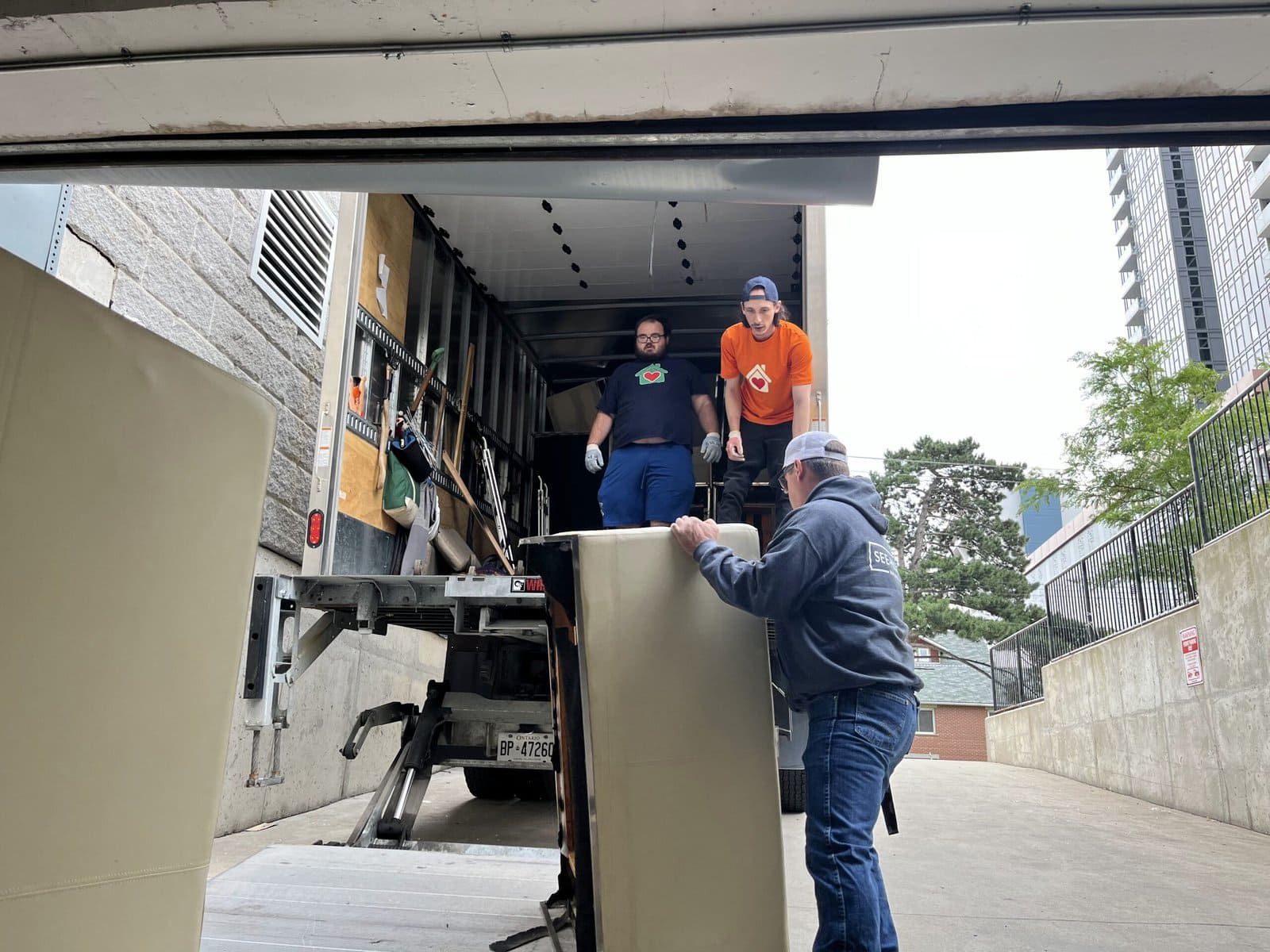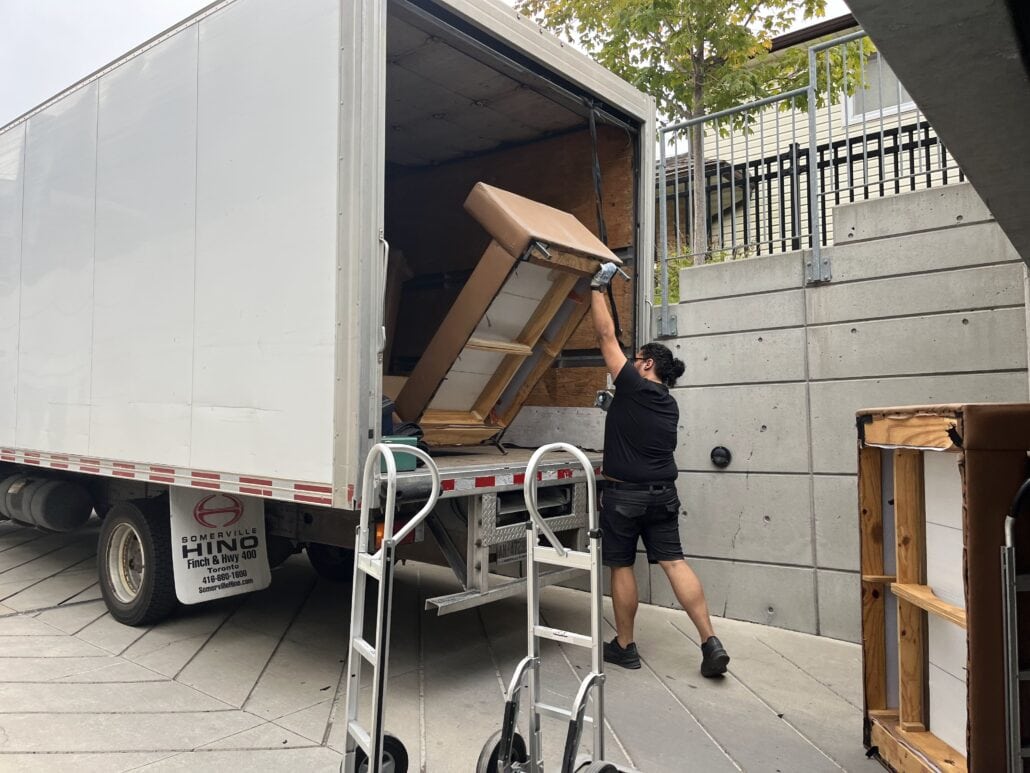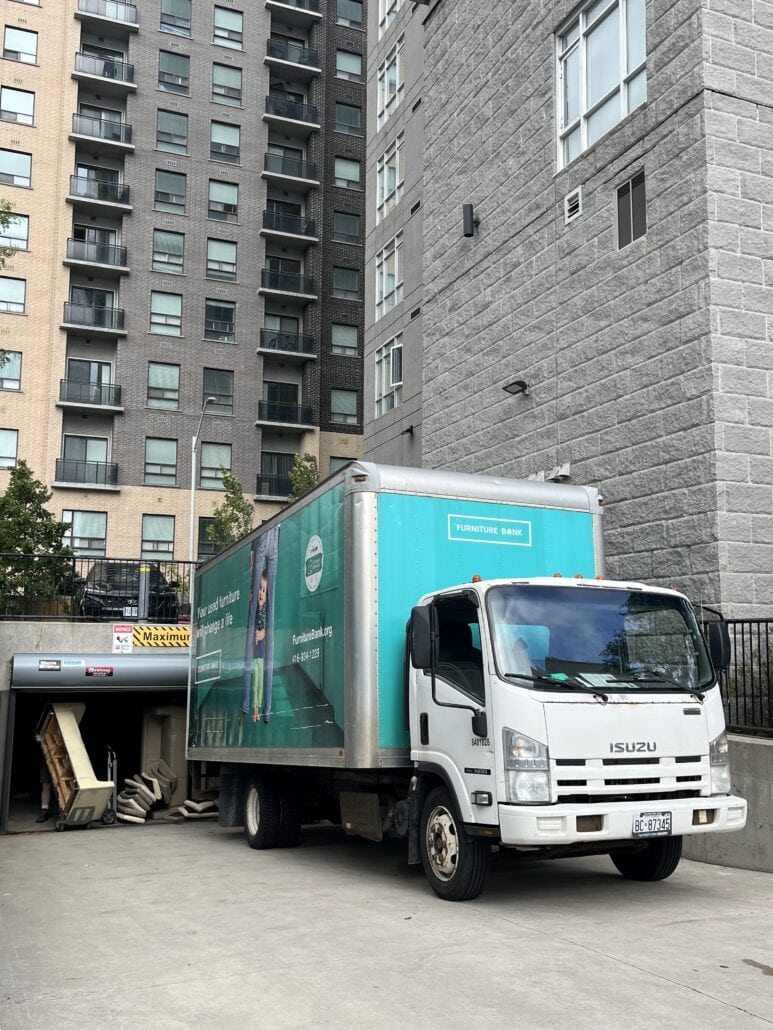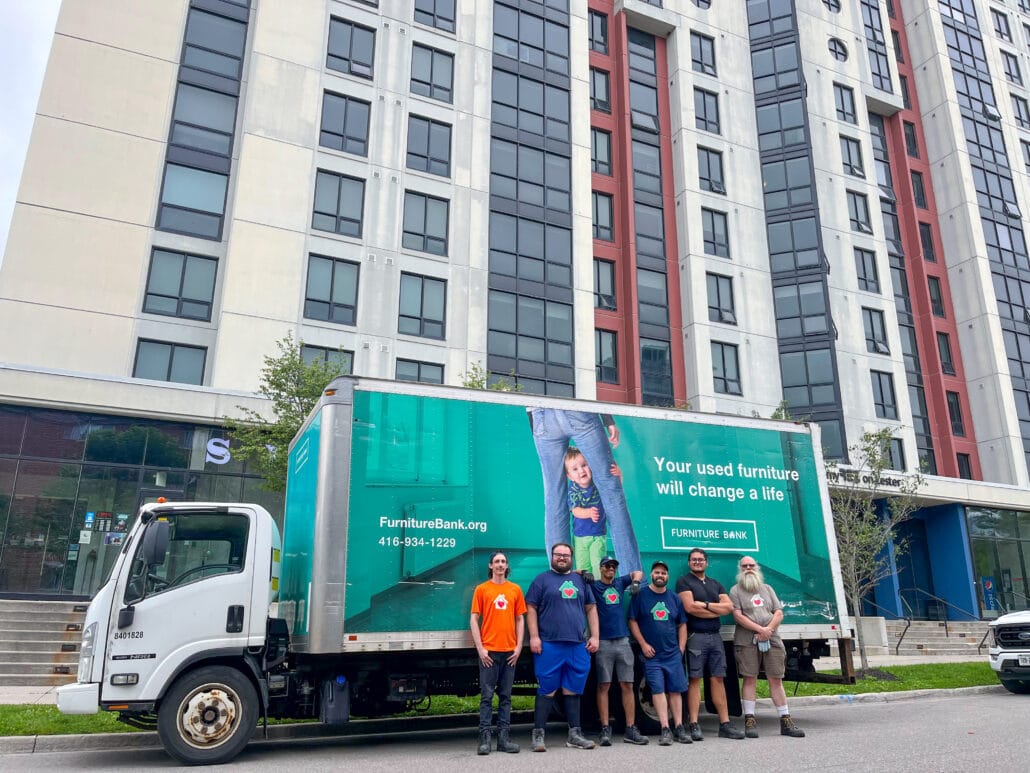Case study of Canadian Student Living
Canadian Student Living is dedicated to offering affordable and high-quality housing options for students across Canada. Their mission is to create a supportive and inclusive community that promotes academic, social, and personal growth. Canadian Student Living also focuses on sustainability, aiming to minimize waste and make a positive impact through furniture reuse when decommissioning used furniture.
Founded in 2018, Canadian Student Living is a Canadian company that partners with Campus Living Centres for property management. Through their partnership with Alignvest Student Housing REIT (ASH), Canadian Student Living owns and operates purpose-built student accommodations. Their values include delivering an exceptional student living experience, prioritizing integrity, quality, and safety, and creating inclusive environments that foster student success.
Canadian Student Living's approach to furniture reuse
In an era where environmental sustainability is not just a buzzword but a business imperative, Canadian Student Living is great example of pushing sustainability into businesses processes. This case study delves into Canadian Student Living’s new approach to decommissioning furniture, an initiative that prioritizes the environment and community welfare in equal measure to business objectives and budgets.
The challenge: Traditional decommissioning
Traditionally, Canadian Student Living’s decommissioning process was straightforward yet environmentally taxing—unwanted furniture was discarded to landfills, with significant financial and ecological costs. This approach was in direct conflict with Canadian Student Living’s core values of sustainability and social responsibility.
Previously, Canadian Student Living disposed of 100% of all furnishings to landfills—never assuming anything could be reused. This process was costly, with each 30-yard bin costing $425 plus tax. It also went against Canadian Student Living’s environmental values.
The shift: Hiring Furniture Bank
That’s why Canadian Student Living piloted a project with Furniture Bank, Canada’s leading furnishing reuse charity. Furniture Bank diverts quality used furniture from businesses like Canadian Student Living and processes items that can be reused by the community into the charity. What could not be reused would be sent to local transfer stations.

“We order thousands of new beds and pieces of furniture every year for our student residents,” said Canadian Student Living’s Sustainability Manager. “We realized much of this furniture still had life left and could make a real difference for marginalized groups.”
Furniture Bank provides Canadian Student Living with furniture removal and reuse services. Using its logistics expertise, Furniture Bank efficiently collects Canadian Student Living’s used furniture and transports items to its Warehouse for inspection, processing and where possible refurbishing. Viable furniture is then made available free of charge to community agencies supporting women, Indigenous peoples, refugees, and other vulnerable groups transitioning into homes.

“Nothing should go to waste when it could transform lives instead. Every year, hundreds of thousands of households in Canada struggle with furniture poverty. Businesses that prioritize REUSE over destroying items through junker services can help support both the social and environmental outcomes with each decommissioning.” –Dan Kershaw, Furniture Bank Executive Director
This innovative pilot demonstrates Canadian Student Living’s commitment to sustainability and community. It reduces waste, decreases carbon emissions, and empowers vulnerable Canadians through the power of donated furniture.
A glimpse into the process
Canadian Student Living’s process of furniture decommissioning underwent a radical transformation with this pilot:
Benefits of the pilot
This pilot between Canadian Student Living and Furniture Bank significantly simplifies the decommissioning process for student residences. Here are just a few of the advantages:
Cost-effective: It mitigates the high costs associated with the removal, storage, and transportation of furniture.
Environmentally friendly: By preventing perfectly usable furniture from ending up in landfills, it helps to reduce waste and carbon emissions.
Operationally effective: Items collected are sorted and processed–reusable items go into the community, items that cannot be reused or recycled are sent to transfer stations–minimizing landfill trips.
Supports community: Items go directly to those in need, contributing to a strong sense of community support.
Education and awareness: It encourages students to consider the lifecycle of their belongings, fostering an awareness of sustainability and responsible consumption.
The pilot is not just about shared resources and logistics—it’s about creating a sustainable future, encouraging responsible living, and transforming lives one piece of furniture at a time.
Quantifying the change

The numbers reflect the success of this initiative:
- Inventory: A total inventory from five residencies included 1 armchair, 46 love seats, 45 sofas, and 3 sectionals.
- Process: The decommissioning spanned two days, involved over four trucks, and was completed at a cost of $7,500

Sustainability in numbers:
- Economic savings: Canadian Student Living saved on disposal costs, evidenced by a tax receipt valued at $19,300.
- Environmental gains: The reuse potential of these items hold environmental savings of 7.49 tonnes of carbon—equivalent to the benefit provided by 344 mature trees or removing 1.6 cars from the roads permanently.
- Social impact: Employing the Social Return on Investment (SROI) methodology, the combined community, environmental, and social benefits can be tracked and measured for all reuse in the community.
Canada Student Living alignment of decommissioning with ESG goals
By extending the existence of furniture items through reuse, we can maximize community benefit, while minimizing the convenience of just ‘dumping it’. This pilot project between Canadian Student Living and Furniture Bank has profound implications not only for the health of our environment, but also for addressing the societal issue of insufficient affordable furniture for those in need.
The foundation of our new approach is rooted in one key principle: minimize waste and maximize usability. We amplify the ‘reduce, reuse, and recycle’ ethos, whereby making it a standard part of our furniture decommissioning approach. This strategic approach introduces a new lifecycle to previously used furniture, strengthens communities, and reduces pressure on the environment.
By re-conceptualizing the process of furniture decommissioning, we become active contributors to sustainability. We thus create tangible value for both our community and the environment. Our approach is not just about ridding you of your old furniture; it’s about reinvention, giving those pieces a second chance to be utilized and cherished once again.
The road ahead
Canadian Student Living’s approach to furniture decommissioning is more than just an environmental statement; it is a testament to the power of purpose-driven business strategies. This pilot not only enhances Canadian Student Living’s sustainability credentials but also offers a scalable model for other institutions seeking to make a tangible impact.
To learn more about Furniture Bank’s transformative work in ending furniture poverty, while ending furniture waste through reuse visit www.furniturebank.org.
As we continue this journey, we invite feedback, partnerships, and ideas that can amplify our impact. Join us in shaping a future where decommissioning serves a greater purpose, for both the planet and its people.
Interested in partnering with Furniture Bank?
Are you looking to revolutionize your business’s approach to disposing of unwanted furniture? Partnering with Furniture Bank not only provides financial advantages but also delivers a host of environmental and social benefits. Let’s reshape the way we handle furniture and make a positive impact together!






